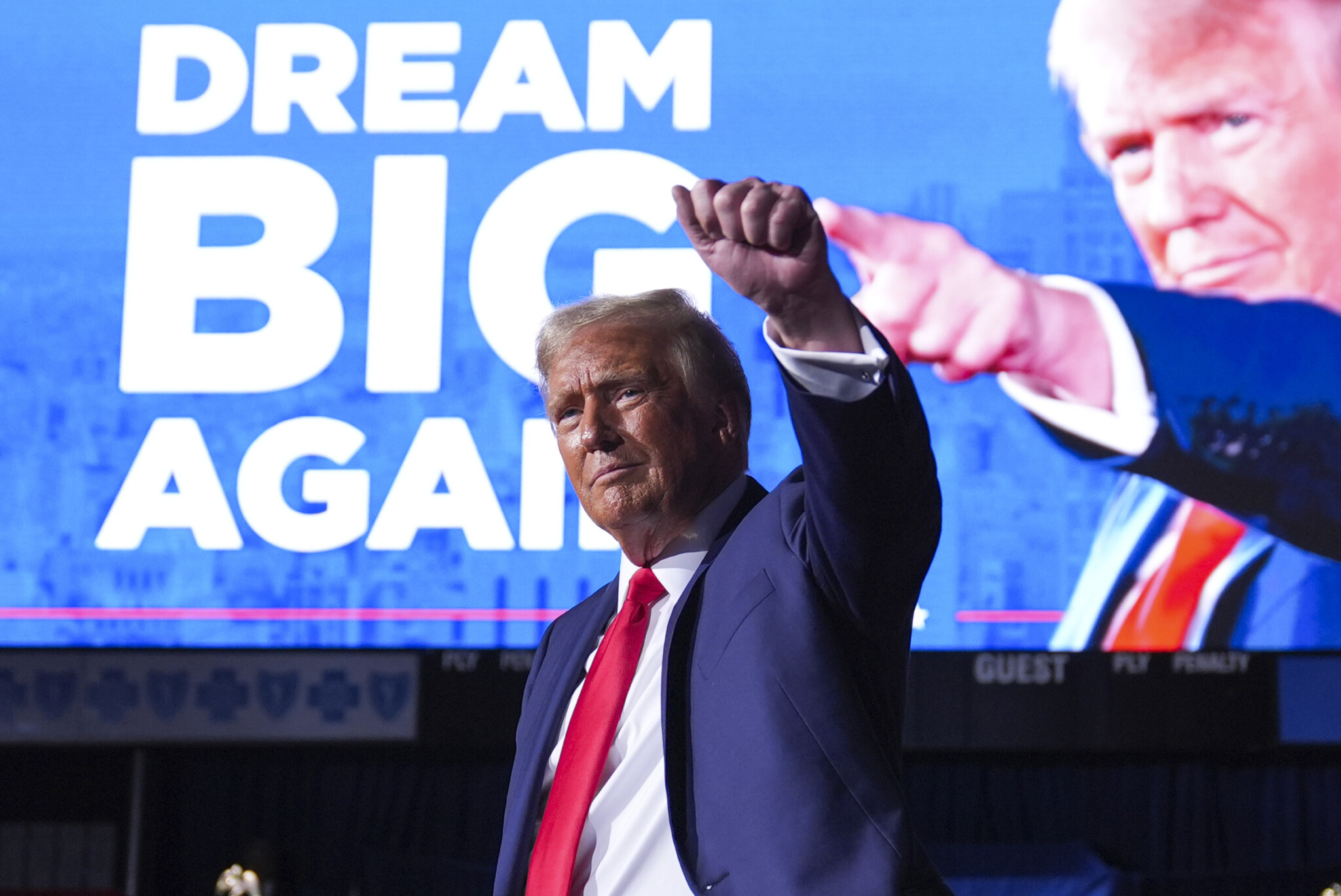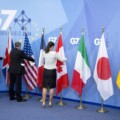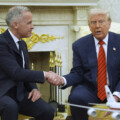Canada awakes this morning to find its southern neighbour once again wearing a bright red MAGA hat. Donald Trump is the presumptive 47th president of the United States of America and will become only the second president to be elected in non-consecutive terms.
In the end, worry about what might happen given a tight, contested election and uncertain results was for naught. As things stand, Trump handily won both the Electoral College and the popular vote count. Indications so far highlight that Trump has a diverse cast of voters to thank for the result, with large Republican gains in the black and Hispanic populations key to securing the winning coalition.
Trump’s resounding victory—and Kamala Harris’ thudding underperformance—will surely provide a rich text for analysts to examine for years to come. Looking for some immediate lessons amidst the morning-after rubble, though, The Hub has gathered the reactions from some of our most insightful key contributors and insiders to sort out what this result means for America, Canada, and the world.
Trump represents risks for Canada—but important opportunities too
By Trevor Tombe, a professor of economics at the University of Calgary
The results are in: Donald Trump has won the U.S. presidential election once again. For Canada, this outcome brings significant economic implications—challenges, but also opportunities.
As Janice Stein noted on The Munk Debates reaction podcast this morning, mounting economic pressures were a key reason for this election outcome. But these pressures aren’t unique to the U.S.; they are being felt across many countries, and Canada is faring worse than our southern neighbour. Despite this, our governments have yet to focus adequately on the economy—an oversight that is troubling given the stakes.
We need a more aggressive push for policies that boost investment, growth, and productivity. Wholesale tax reform, a commitment to strengthening our internal market, a smart and streamlined overhaul of regulations, and getting our fiscal houses in order (especially provinces) are all critical steps we must take. Perhaps a Royal Commission or two could help cut through some of the difficult challenges that governments seem unable to tackle. Such a focus would, of course, be of significant benefit to Canadians. But it’s increasingly clear that an economic focus is necessary for our leaders’ own political survival and success.
Trump’s return also means potential trade disruptions, with new tariffs a very real risk. However, as a trade-intensive economy, Canada should view this as both a threat and an opportunity. Our upcoming Free Trade Agreement review in 2026 is a chance to liberalize our agricultural markets, greatly benefiting millions of Canadian families struggling with high grocery prices. At the very least, we can end policies that artificially inflate those costs. A trade dispute with the United States might finally provide that opportunity. By offering “concessions” to secure a deal, we could benefit both the new U.S. administration (Wisconsin is a massive milk producer and a key swing state) and Canadians alike. (Full disclosure: I’ve made this argument before and was wrong. The U.S. backed off then, but our governments shouldn’t count on that again.)
It’s time for our leaders to break free from the influence of a small group of extremely well-off and narrow agricultural interests that have held back our entire trade agenda and economic potential for too long. Bold action is needed, and it’s needed now. Trump’s election might (just might!) provide an opportunity to do just that.
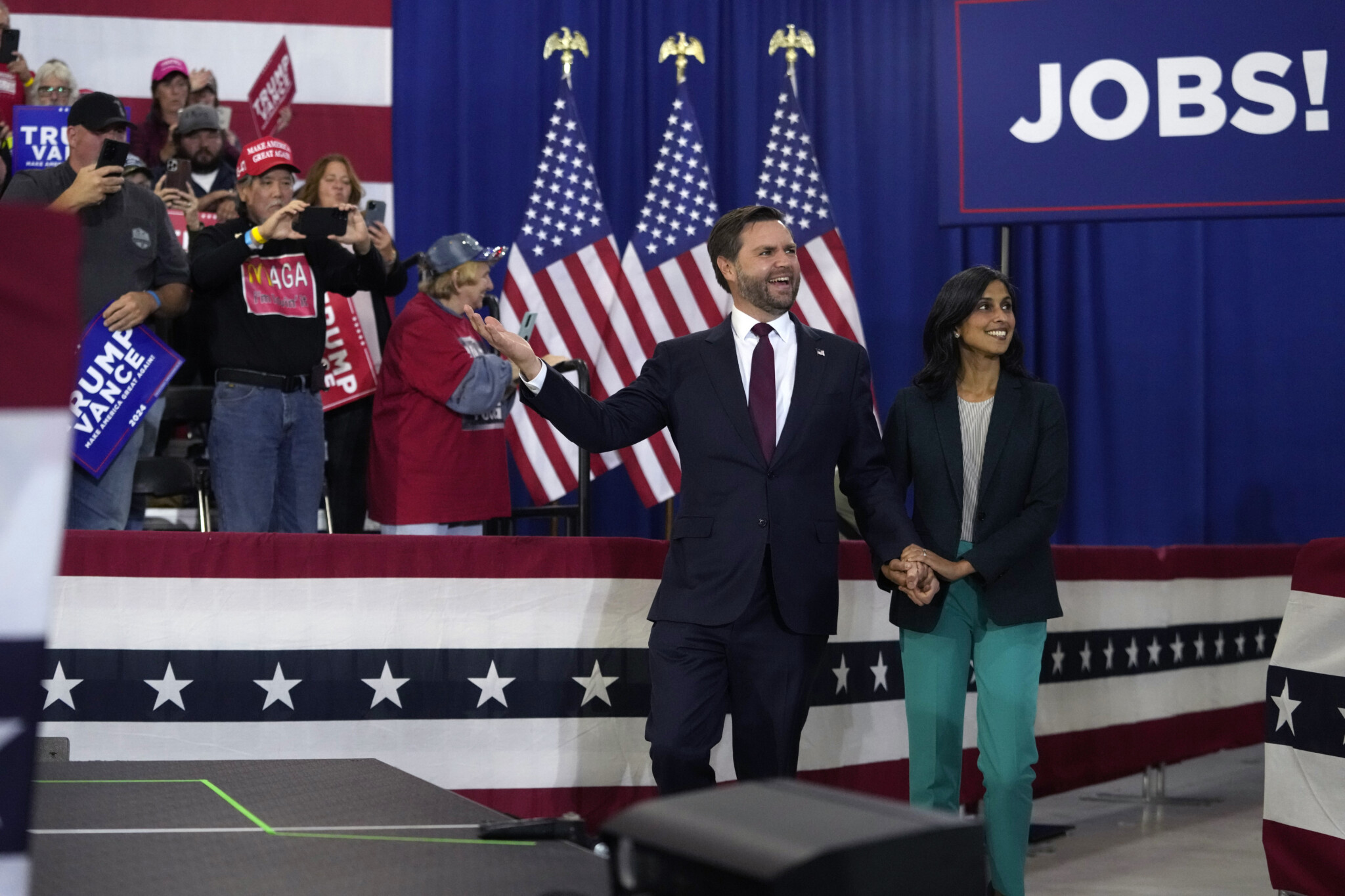
Republican vice presidential nominee Sen. JD Vance, R-Ohio, with his wife Usha at a campaign event, Oct. 24, 2024, in Waterford, Mich. Carlos Osorio/AP Photo.
It’s time for conservatives to embrace the Right’s political realignment
By Sean Speer, The Hub’s editor-at-large
A lot of Anglo-American conservatives (including myself at certain points) have sought to run away from the political realignment. We’re inclined to go back to the way that it was before Brexit, Donald Trump, or other manifestations of political transformation on the Right.
For those who hoped these developments were merely transitory, a lot was at stake last night. Trump’s defeat—particularly a decisive outcome—would have signaled that his brand of populist nationalism was a spent force.
Yet the result was the opposite. Not only has he won the election with a healthy margin, but he’s made impressive gains with hitherto inaccessible minority voters. Manhattan Institute president Reihan Salam’s conservative multi-ethnic working-class coalition is increasingly coming into focus. And it is a formidable political force.
Yet if the political realignment is a huge opportunity for Anglo-American conservatives, it also represents a big challenge. The risk is that in trying to be more responsive to their new and evolving voter coalition, conservatives sacrifice who they are and what they believe in. There’s no point in winning if they throw free markets or limited government or other core conservative beliefs under the bus.
After last night, the project, then, must be to build a renewed policy agenda that reflects working-class interests, concerns, and aspirations, rooted in conservative principles.
It may not look precisely what we’ve come to expect from conservatives. It will doubtless require a process of trial and error. But the goal must be to realize the benefits of the political realignment without losing their own conservatism in the process.
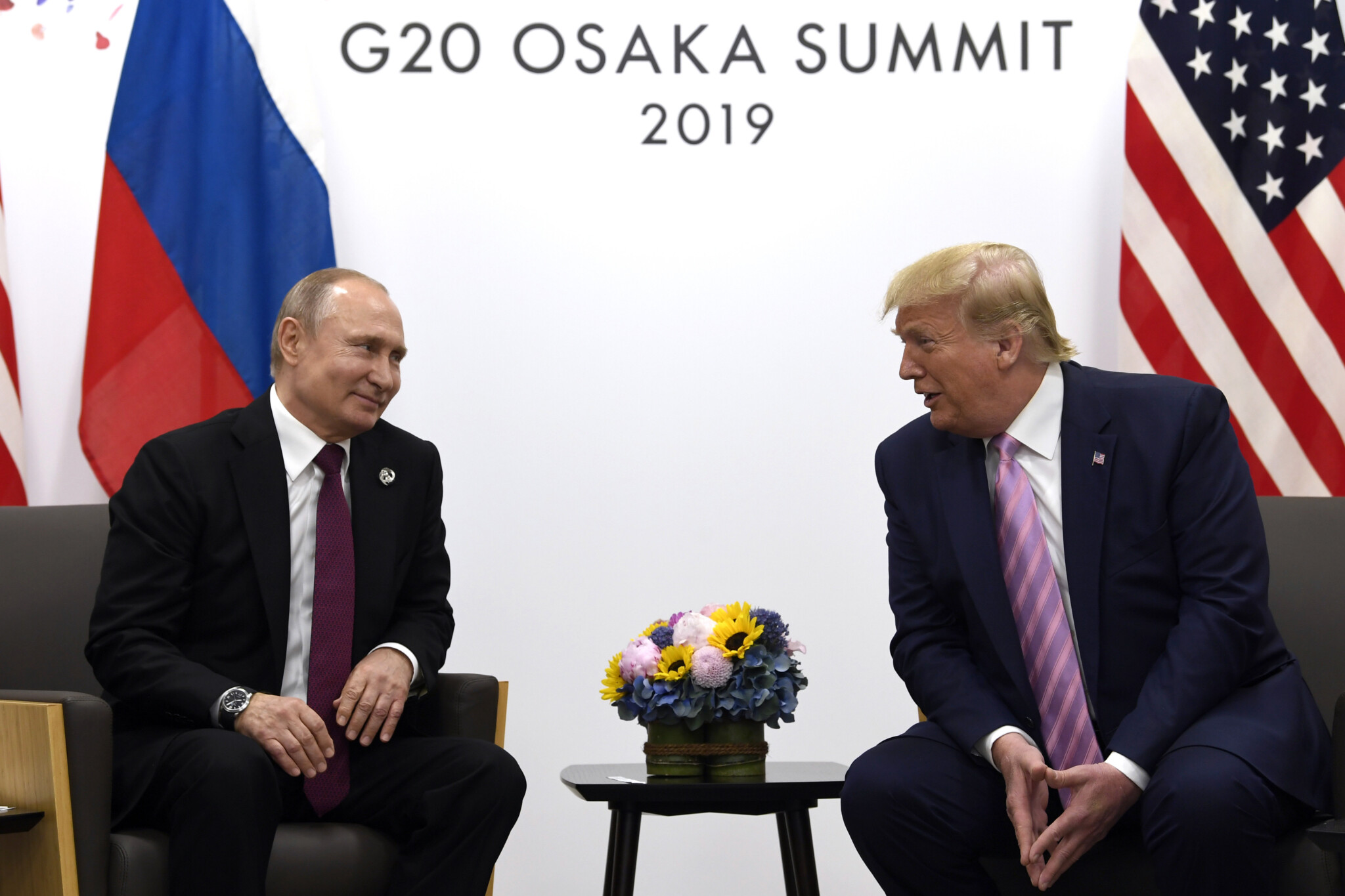
In this June 28, 2019, file photo, President Donald Trump, right, meets with Russian President Vladimir Putin during a bilateral meeting on the sidelines of the G-20 summit in Osaka, Japan. Susan Walsh/AP Photo.
Uncertainty is the only certainty regarding Trump’s foreign policy
By Kerry Buck, formerly Canada’s ambassador and permanent representative to NATO, now a senior fellow at the Graduate School of Public and International Affairs at the University of Ottawa
The impact of a second Trump term on global security is hard to predict. In some ways, unpredictability is a feature, not a bug of Trump’s approach to international relations. During the first Trump presidency and the campaign that just ended, President-elect Trump threatened to repudiate NATO’s collective defence guarantee and encouraged Russia to invade NATO allies that didn’t meet the defence spending target of 2 percent of GDP. He also promised to maintain new tariffs on countries that don’t meet the target and to “radically reorient” the NATO alliance.
Not only did he say he wouldn’t rush to protect smaller allies if they were invaded, he invited Russian President Vladimir Putin to do “whatever the hell he wanted.” He has also said that he would end the war in Ukraine within 24 hours of taking office, presumably by cutting a deal with Putin for Ukrainian territory, sending a message to other would-be military expansionist countries (China anyone?) that violating international borders is a worthwhile investment. He has indicated that he wouldn’t necessarily be prepared to threaten China with military force if it chooses to invade Taiwan, a country that Trump sees as having stolen the microchip market from the U.S.
In the Middle East, the only thing that is clear is Trump’s affinity for Israeli Prime Minister Netanyahu, and it is hard to see how this could lead to a faster ceasefire in Gaza or Lebanon.
While many describe Trump’s America First platform as an extreme form of isolationism, in many ways what the Trump rhetoric promises looks more like the U.S. acting as a global wrecking ball. We also know from Trump’s first term that rhetoric can be just that—a negotiating tactic aimed at increasing U.S. leverage. But the world today is more dangerous and volatile than it was during Trump’s first term.
All this leaves Canada in a very vulnerable position. It would have been smart to start increasing defence spending as a percentage of GDP as soon as the NATO commitment to 2 percent was made starting as far back as 2006 by NATO defence ministers and then leaders in 2014.
Given the possibility of a Trump return to office, it certainly would have been smart to announce at the start of the Washington summit this past summer not only a date but a concrete detailed plan to reach the NATO defence spending goals.
I suggest Canada needs to do three things now, and fast: first, reverse the cuts to the defence department and be ready to release a costed, ambitious plan to meet NATO targets sooner than 2032. Second, work to diversify and deepen our security and defence relations with other NATO allies in areas where we are most vulnerable, in the Arctic for example. Third, Canada needs to try to “save the multilateral furniture while it’s still around,” working to bolster the resilience of those multilateral bodies, like NATO, that can give us ready access to a broader array of allies able and ready to share security risks and burdens.
Get ready for a rough ride, Canada
By Fen Hampson, professor of International Affairs & Chancellor’s Professor at Carleton University, and co-chair of the Canada-U.S. Expert Group on Canada-US Relations
Trump’s victory is a code-red warning to Canadians and the government of Canada. Our bilateral ties are in for a very rough ride. Trump 2.0 won’t be the same as Trump 1.0. He is dead set on settling scores not just with his political enemies, but with key U.S. trading partners. This includes Canada, who he believes have had it easy and treated U.S. producers unfairly.
Whether Trump decides to slap a 10-20 percent tariff on U.S. trading partners right away or do so gradually as a bargaining tool, the consequences will be dire for us. Are we ready for tough talks on CUSMA renewal, where everything—including supply management and Canada’s digital services tax will be on the table?
If the Bloc’s bill to avoid further trade concessions on dairy and poultry is passed, we will be waving a red cape in front of a raging bull. As Trump’s former ambassador to Canada Kelly Craft recently warned, Canada had also better quickly ramp up its defence spending to meet NATO’s 2 percent of GDP target.
If we continue to drag our feet, we will be in President Trump’s gun sights. We also better get ready for a stampede at the border if illegal migrants in the U.S. decide to head north to avoid Trump’s deportation orders. During the first Trump presidency, Canada had a key ally in Trump’s court in former Prime Minister Brian Mulroney, who ran interference when Trump wanted to stick it to us. There is no one who can do that now.
Trump 2.0 might actually be good for Canada
By Gordon G. Chang, author of Plan Red: China’s Project to Destroy America and The Coming Collapse of China
Ballots will be counted for days, but it’s clear ordinary Americans expressed deep frustration and anger as they voted. Once the bastion of the rich and elite, the Republican Party won because it spoke for workers and the ignored. Led by a billionaire, Donald Trump, the message from polling booths was clear: “You ignored us, we voted, and this is our country now.” Some call Trump’s coalition the “New Right.”
So how will Trump, constitutionally barred from running again, govern? The message from his first term was clear: Make America Great Again. MAGA will not be particularly good for Mexico, but the other American neighbour, Canada, should, on balance, like what will happen. Trump’s MAGA focus means he will juice the domestic American economy. Ordinary Americans, after all, elected him. With both a Senate and House of Representatives under Republican control, Trump will have a relatively free hand in cutting regulation and taxes—the core of his program in the first term. During that time, the economy boomed. A strong U.S. economy will boost Canada’s in his second term.
Will trade in fact boom? On July 1, 2026, the three parties to USMCA will have to confirm the pact’s extension. Trump likes to renegotiate everything, so expect some turbulence in trade with America, but the two mature North American economies will be doing well in two years’ time. This means it will not be in America’s interest to disrupt trade.
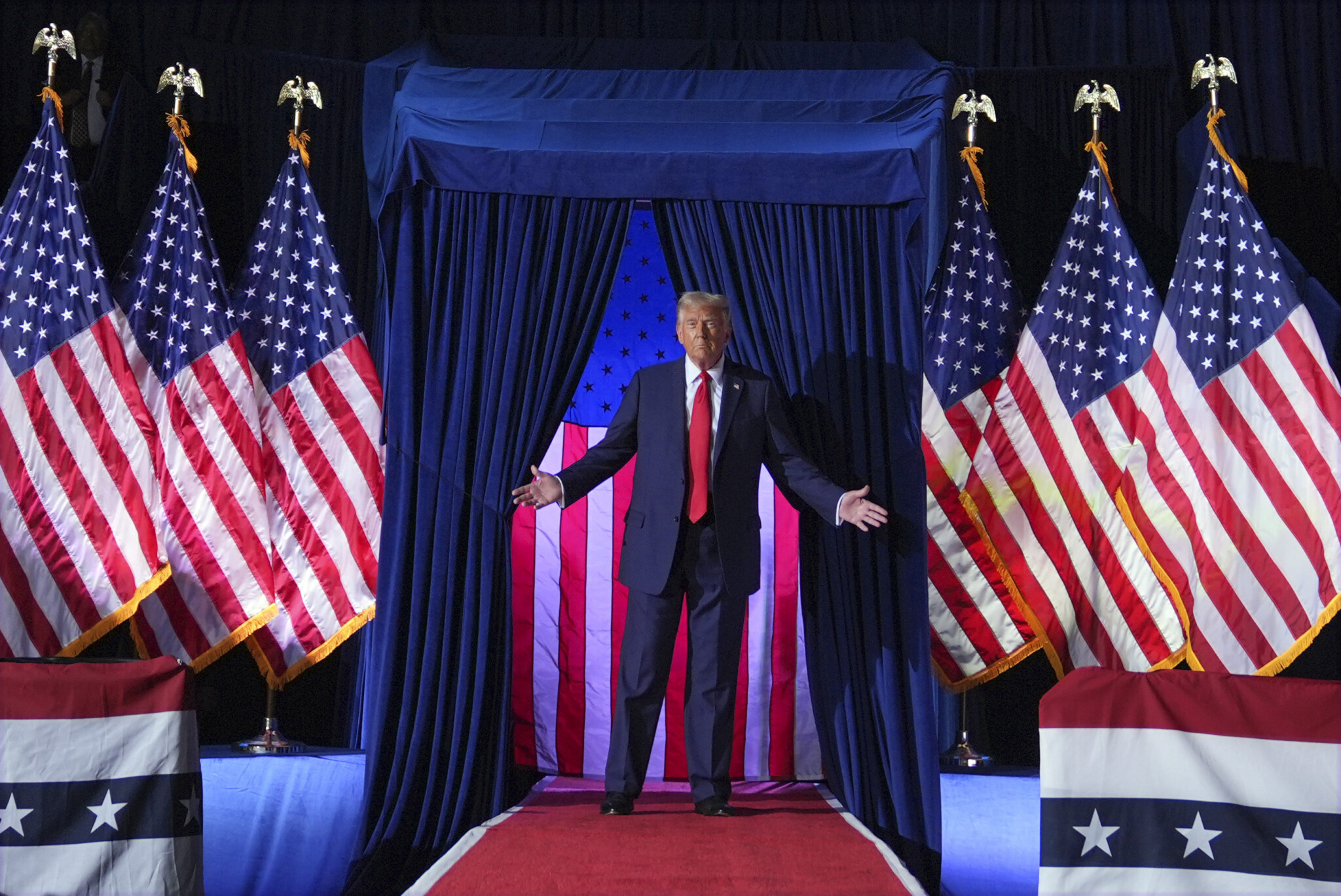
Republican presidential nominee former President Donald Trump arrives for a campaign rally at Van Andel Arena, Nov. 5, 2024, in Grand Rapids, Mich. Evan Vucci/AP Photo.
Demonizing Donald Trump will do Canada no good
By David Mulroney, Canada’s former ambassador to China
I have three suggestions for Canadians to consider in the wake of Donald Trump’s election.
The first is that we refrain from demonizing our neighbours. Indeed, we should show restraint and respect precisely because Americans are our neighbours, and very good ones. Let’s also acknowledge that the relentless pace of social and cultural change in the past few years is shaking up politics here, too.
Second, Ottawa should resist the temptation to win plaudits by doubling down on our own progressivism. Nothing forces us to applaud much less adopt U.S. policies with which we disagree. But while a second Trump administration will be more narrowly focused on U.S. interests, it may also be less inclined to embrace the tone-deaf approach that can characterize the way progressive states engage countries that are smaller, poorer, and more conservative. My personal hope is that the new U.S. administration challenges the near indifference with which Western states, Canada included, react to abuses—including incarceration, kidnapping, rape, forced marriage, and forced conversion—now regularly inflicted on vulnerable Christians in Africa, South Asia, the Middle East, and China.
Third and finally, nothing in yesterday’s U.S. election changes Canada’s own to-do list. Recovering our economic dynamism, fixing our immigration system, and restoring our national defence and security will keep us very busy for the next four years. The road to success for much of this agenda now runs through Trump’s Washington.
Canada is less prepared than ever for the unpredictabilities of Trump
By Richard Shimooka, a Hub contributing writer and a senior fellow at the Macdonald-Laurier Institute
Donald Trump’s reelection has sent shockwaves through the Canadian political and foreign policy community. While Canada has been through this situation before, it is now in a far shakier position to deal with the unpredictabilities of another Trump presidency. Indeed, the fundamentals of its bilateral relationship could potentially be in its worst state in over eighty years.
President Trump’s economic prosperity message during the campaign was predicated heavily on protectionism and tariffs. This is a potential dagger into the heart of Canadian prosperity, which has been heavily tied to free trade, especially since the signing of the USFTA in the 1980s. The only saving grace is that the USMCA is a deal that the Trump Administration negotiated, which may make him somewhat less likely to renege on it.
Yet it is the bedrock concerns surrounding security that will likely become more damaging in the long run. The current government’s complete inability to meet its 2 percent defence spending commitments will become a major impediment to the bilateral relationship. Ironically, Canada was largely spared from being pushed on its defence spending during the first Trump term. Unfortunately, that’s highly unlikely during the second; Congress is no longer a helpful ally for Canada here. It is widely understood within all levels of the U.S. federal government that the Trudeau government is unwilling to move on this issue, despite serious concerns about growing threats to the continent.
Something will have to give. I doubt it will be Trump.
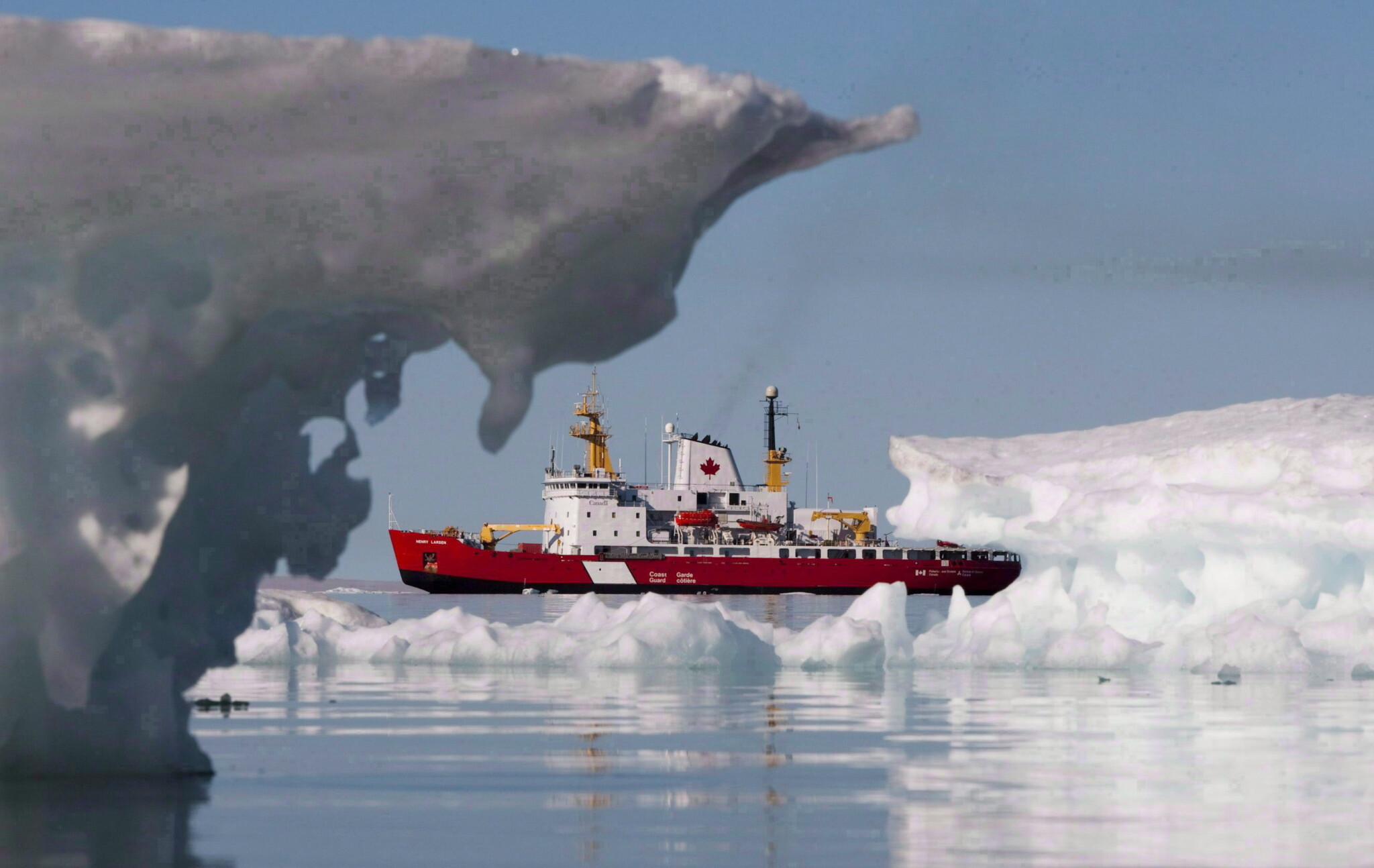
The Canadian Coast guard’s medium icebreaker Henry Larsen is seen in Allen Bay during Operation Nanook near Resolute, Nunavut, August 25, 2010. Sean Kilpatrick/The Canadian Press.
Arctic security looms large as a Canada-U.S. flashpoint
By Rob Huebert, the interim director for the Centre for Military Security and Strategic Studies at the University of Calgary
Following the re-election of Donald Trump, one of the obvious areas of concern for Canadian-American relations will be in regard to the Arctic. Assuming that we need to take Trump seriously on what he says he will do, our Arctic relations are jeopardized by his position on protecting American borders and penalizing any American ally who is seen as free-riding on American security guarantees.
While his focus is currently on the southern American border, any effort to “fix” that problem will likely also draw attention to issues with the northern North American border. This will be amplified by a growing American perception that Canada is not doing enough regarding its defence spending. We know that American political leaders are already noting this because prior to the election, a bipartisan group of American senators publicly admonished the Canadian government for not doing enough for its own defences.
Canada has never met the agreement it made at the 2014 NATO Wales Summit to spend at least 2 percent of its GDP on defence spending. Should the Trump administration come to the observation that Canada is free-riding off American security efforts and has left the Arctic border at risk, it is probable that the Americans will put both political and economic pressure on Canada to do more.
But the question remains as to what actions the Americans will undertake if they come to the conclusion that they need to act unilaterally to protect the northern border of North America. Will this mean that Canada is left out of their efforts, or, even worse, that this will lead to real violations of Canadian Arctic sovereignty? The recently published federal defence update, “Our North, Strong and Free: A Renewed Vision for Canada’s Defence” is an attempt to show the Americans that we intend to do more. But will it be enough?
Despite potential speed bumps, the Canada-U.S. trade relationship will endure
By Beth Burke, CEO of the Canadian American Business Council
This election, like many before it, was historic for many reasons. The return of the Republicans to the White House, winning control of the Senate, and possibly the House, will give President Donald Trump the legislative authority to move forward with his agenda.
Many Canadians and business organizations, like the Canadian American Business Council (CABC), have spent time reflecting on how political scenarios will impact the Canada-U.S. relationship. Overall, we know that our relationship supersedes any one political administration. We also know that communication and education are cornerstones to strengthening our partnership. There will be an important opportunity for Canada and the business community to engage with a large class of new members of Congress in 2025.
These lawmakers were likely never involved in the re-negotiated USMCA, which framed the Canada-U.S. trade relationship for the last decade and which is set to be reviewed in 2026.
Our collective business and trade relationship relies on the free flow of goods and services between our countries. While much of the discussion has been focused on punitive trade measures the White House might be considering, Canada has an opportunity to start with a blank slate with a new Congress and to tell the story of the successful Canadian-U.S. trade relationship.
There is much to be built upon and undoubtedly some hurdles along the way. Throughout history, 47 presidents and 23 prime ministers have found ways to move forward the most successful relationship on the planet; the new occupants of the White House will be no different.
Don’t be fooled
By Ben Rowsell, convener at the Circle for Democratic Solidarity and a former Canadian ambassador
With the election of a candidate who will very likely not leave office willingly, the tenuous hold American citizens had over those who govern them has been broken. Donald Trump told the people who elected him that he will not govern by democratic means, and the electorate willingly elevated him to power.
Don’t be fooled by advice to wait and see how Trump will use his power. He has been remarkably clear: he will use it to persecute opponents, to threaten journalists, to become a “dictator on day one” and make this “the last time you are going to have to vote.”
Canada’s attention will quickly be consumed by the threats Trump poses to our security and prosperity. After all, the anchor country of all our alliances has elected a leader who favours authoritarian adversaries over democratic friends. The trading partner that receives more than 77 percent of our exports has chosen a president who opposes free trade.
But we cannot afford to ignore the threat to our own democracy. The norms that undergird democracy must be shared beyond our borders if they are to prevail within them. If the most powerful government in the world becomes no longer accountable to its citizens, some Canadian political actors will be tempted to follow suit.
Canada should make common cause with remaining liberal democracies to build new security and economic relationships to ensure that freedom, equality, and the rule of law remain the dominant norms in our societies—and to encourage the U.S. to rejoin that consensus one day.
